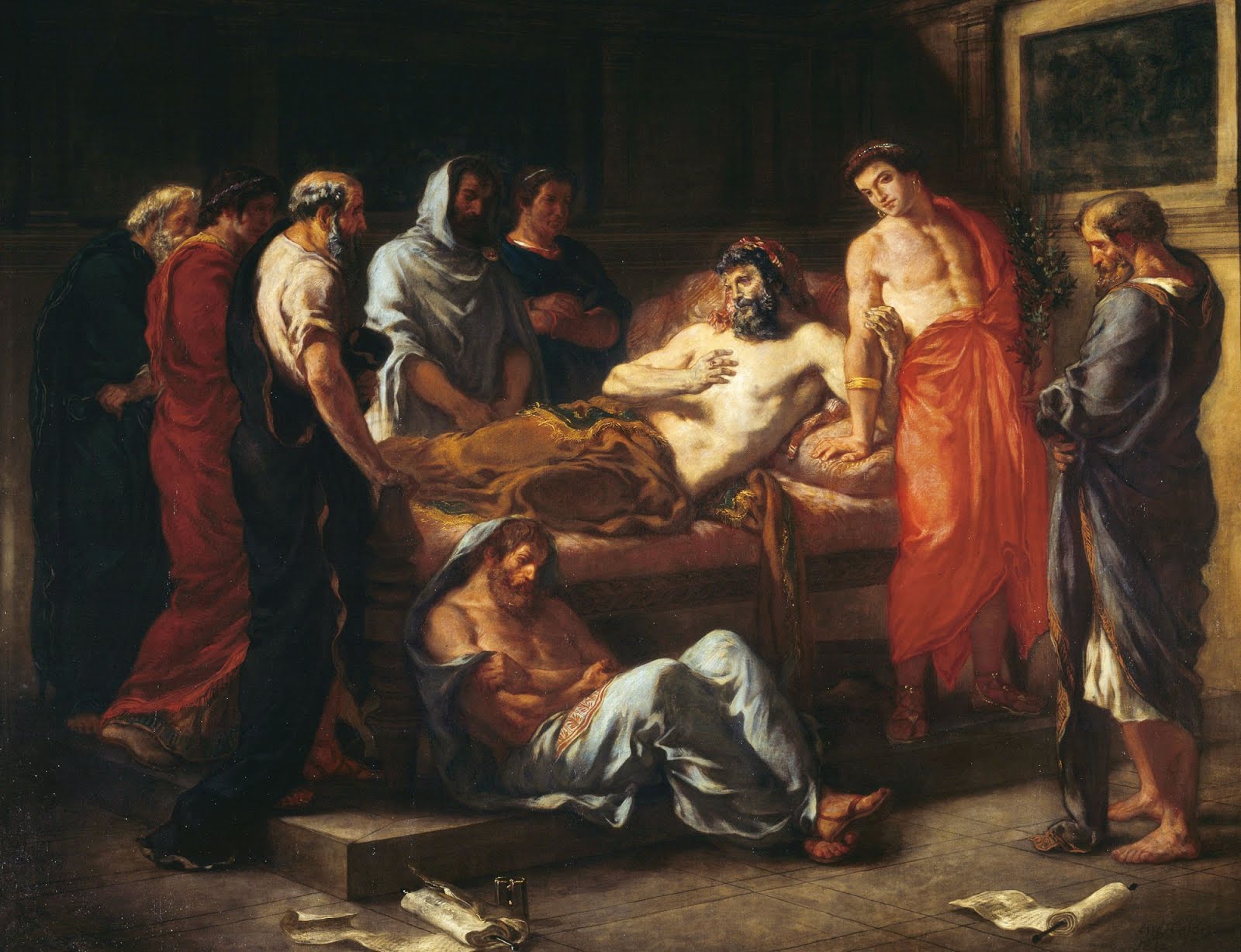But nothing is so damaging to good character as the habit of lounging at the games; for then it is that vice steals subtly upon one through the avenue of pleasure. What do you think I mean? I mean that I come home more greedy, more ambitious, more voluptuous, and even more cruel and inhuman—because I have been among human beings.
By chance I attended a mid-day exhibition, expecting some fun, wit, and relaxation—an exhibition at which men's eyes have respite from the slaughter of their fellow men.
But it was quite the reverse. The previous combats were the essence of compassion; but now all the trifling is put aside, and it is pure murder. The men have no defensive armor. They are exposed to blows at all points, and no one ever strikes in vain.
Many persons prefer this program to the usual pairs and to the bouts "by request." Of course they do; there is no helmet or shield to deflect the weapon. What is the need of defensive armor, or of skill? All these mean delaying death.
In the morning they throw men to the lions and the bears; at noon, they throw them to the spectators. The spectators demand that the slayer shall face the man who is to slay him in his turn; and they always reserve the latest conqueror for another butchering. The outcome of every fight is death, and the means are fire and sword. This sort of thing goes on while the arena is empty.
The Romans had all sorts of public games to keep the people entertained, or, as those like Juvenal saw it, to keep them occupied and diverted. One could sit back and relax to music and dancing, grand theatrical performances, athletic competitions, horse and chariot racing, gladiatorial combat, or beast fighting. I have long been especially fascinated by the mock naval battles, performed with scale models in giant artificial pools.
Whenever I was taught about these Roman games at school, most teachers and students expressed a certain curiosity, along with a smug condescension. I suppose the assumption was that we no longer do such ridiculous things, especially not of the more violent variety. After all, what sort of civilized and modern person would be amused by watching pain and suffering?
I did try to point out that we still do very much the same, with our own peculiar variations, but I quickly learned to zip my lip. I was met with blank stares. “Don’t be so silly! No one ever gets hurt nowadays!”
Sometimes the violence is to the body, and sometimes the violence is to the soul. In whatever combinations we find it, I can only wonder about the desires that go behind it. Yes, there is sadly a powerful excitement we can get from experiencing brutality, especially when it is amplified by the roar of the masses.
The professional gladiators fought with elaborate weapons and armor, practicing carefully choreographed moves, and won big profits for their promoters. Perhaps the high production values could hide a bit of the deeper nastiness, but there were some that didn’t even need such a fancy veneer. They were drawn to the public execution of criminals that Seneca describes.
After all, if some poor fellow has to die by law, why not make a show of it? Then the people can get their money’s worth.
When I taught middle and high school, I recall many times where young folks, who normally wouldn’t think of hurting a fly, got sucked into throwing fists if they were goaded on by a crowd.
The eager spectators themselves may have, individually, been decent people, and yet, in the middle of all the boasting and the shouting, they became something very different. Hatred and violence are toxic that way, seeming to jump from one shaking fist to another, bypassing the mind completely.
I only need to remember that a personal love, rising up from far deeper inside than any bloodlust, is the only antidote.
Written in 4/2012

























